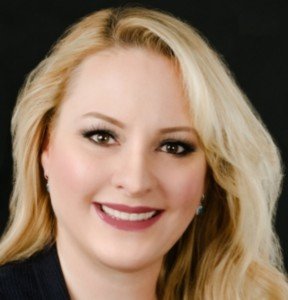
If your child is the youngest in the class and especially entire grade, you’ll want to make sure that you don’t make the following mistakes.
I started first grade at age five, and I have some great advice for you.
Do’s and Don’t’s for Parents Whose Child Is Younger than Everyone Else in the Class
If he or she complains that classmates are reaching various milestones sooner, explain that the milestones will come to your child at the same rate whether he’s with kids his age or a year older.
Don’t ever make a big deal about the age difference, but if the issue surfaces, open up the lines of communication and listen.
Never, ever tell your child that she’s “emotionally behind” or “not as mature” as her classmates.
When I was in seventh grade (age 11), I was the only girl who remained sitting calmly at my desk in homeroom when a bee flew into the room.
All the girls (12 years old, maybe a few 13’ers) fled the room shrieking. The boys stayed behind.
I went to a new high school for grades 11 and 12. It was small and had only one restroom (with several stalls). Between class changes it was always filled with girls – older than me – smoking.
Stinking up the restroom with smoke, knowing full-well it was against school rules to smoke in the building, is a sign of immaturity and blatant disregard for nonsmokers who’d like to use the facility without gagging on the stench of ashes (the restroom wasn’t regularly cleaned).
I never smoked or drank. Older kids did. I never got into trouble. Older kids did. I never stuck gum under desks. And I’d witness older kids cry over things that didn’t phase me.
Was I perfect? No. Once I threw a paper airplane and it hit the teacher in her eye, knocking out her contact lens.
I had no idea the plane would veer that way. I looked away and played innocent, and the teacher never found out where the plane had come from.
Yes, I had my occasional moments, but overall, I was a very low-maintenance, chilled-out kid who began babysitting at age 11.
But believe it or not, I heard more than once from family members that I was “emotionally behind” my classmates because I was younger!
If you don’t want a resentful kid, never tell them they’re less mature than their classmates just because they’re the youngest.
And don’t tell other people that your child is less mature than their classmates, either.

Maturity Level Doesn’t Always Correspond to Being the Youngest in the Class
The most disruptive kids in any class I’d ever been in were not the younger ones.
How Do You Define “Maturity”?
An 11-year-old girl may still be drawn to “The American Doll” or scampering around with her seven- and eight-year-old neighbors, while her 12- and 13-year-old female classmates are more interested in fashion, boys and babysitting jobs.
But this doesn’t mean she’s less mature than they are.
Who’s to say that in a school bus accident, this 11-year-old wouldn’t be the first to go around seeing if anyone was hurt, while the older girls were hysterical and immobile, despite having no injuries?
When I was 13 and a freshman at an all-girls Catholic high school, some older boys from an all-boys Catholic high school entered the building between classes and released a decapitated chicken.
The bird crazily ran all over the place (neurological reflex), dripping blood everywhere.
When the bell rang for the next period and girls filled the hall, they screamed and chaotically dispersed in all directions—girls who were older than me.
I remained calm and simply made sure that the bird didn’t come near me.
Another incident at this school, when I was 13, involved the nun who was in charge of directing school musicals.
The cast performed poorly for the first evening’s production, and we were ordered to sit in the gym’s bleachers afterward.
The nun stood across the gym and began hollering at us, spouting ugly things.
She was so aggressive that the principal had to stand behind her, hands on her upper arms to restrain her.
After her tirade we were released to the dressing room. A 12th grade girl who towered over me was very shaken up and sobbing, exclaiming to me (because I was the nearest to her), “Did you hear what she said?! Did you hear what she said?!”
This girl, prior to all of this, had always come across as thick-skinned, rough around the edges, the kind who wouldn’t take any guff from another classmate.
Yet here she was, unraveled and in tears. And me? I wasn’t the least bit shaken up by the crazed nun’s temper tantrum. Instead, I hated the nun even more.
If your child is one of the youngest in his or her grade, don’t sweat it and never use it as an excuse for anything.
When Your Child Is the Youngest in the Class in Elementary School

“In my experience this is really only an issue in elementary school when a year can make a huge difference in developmental and emotional maturity,” says Dr. Tia Kern-Butler, a licensed psychologist for over 20 years who treats a broad range of issues including relationship problems and behavioral issues of children and adolescents.
“Yes, a parent should never tell a child that they’re emotionally behind, nor should they really compare the child in any negative way to their peers.
“If a child is struggling with this issue there must be a particular reason why they’re feeling out of place (perhaps they can’t do something the other children can, or another child is calling them a baby, etc.).
“A parent should try to talk to their child about what is going on and how they feel about it first, before jumping to conclusions or giving any opinion on it themselves.
“Often a child’s perspective on a situation is much different, and the parent can get a better idea of how to respond when they know how the child is perceiving it.
“If a child feels out of place because of skill differences, the parent should focus on the fact that all people are different and have different strengths.”
The parent should also remind the child that he or she will grow into the skill-set that older classmates have.
Maybe you can also say, “No matter what your age, you will always be a year younger than someone, and someone will always be a year younger than you.”
Dr. Kern-Butler also advises that the parent help develop their son or daughter’s unique strengths.
“They can also discuss that skills are learned and can be improved with practice and identify some ways to help their child do this,” says Dr. Kern-Butler.
 Currently in private practice Dr. Kern-Butler spent 10 years as the lead child and adolescent psychologist with Winter Haven Hospital and served as the mental health liaison for the Children’s Advocacy Center for 14 years.
Currently in private practice Dr. Kern-Butler spent 10 years as the lead child and adolescent psychologist with Winter Haven Hospital and served as the mental health liaison for the Children’s Advocacy Center for 14 years.
Professionalpsychologyofpinellas.com/about-me
 Lorra Garrick has been covering medical, fitness and cybersecurity topics for many years, having written thousands of articles for print magazines and websites, including as a ghostwriter. She’s also a former ACE-certified personal trainer.
Lorra Garrick has been covering medical, fitness and cybersecurity topics for many years, having written thousands of articles for print magazines and websites, including as a ghostwriter. She’s also a former ACE-certified personal trainer.
.









































